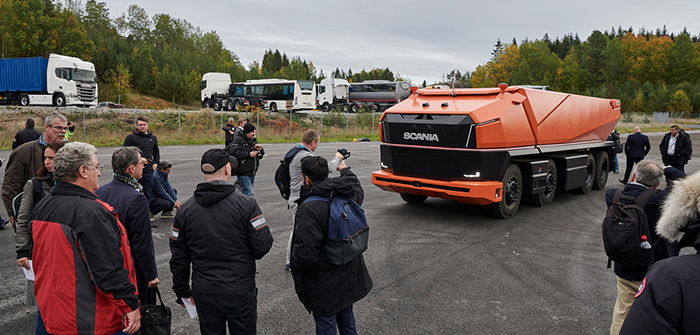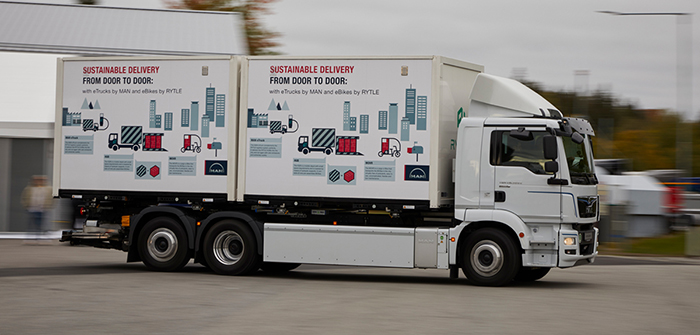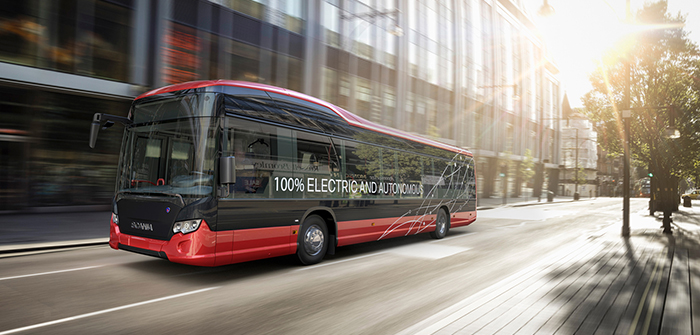The VW Group’s heavy commercial vehicle subsidiary, Traton Group, is planning to spend more than €1bn (US$1.1bn) on digitization and another €1bn on electrification. The main pillar of these programs will be to develop common platforms to be shared across the MAN, Scania, and Volkswagen Caminhões e Ônibus (VWCO) brands.
Working toward autonomous driving, the Traton Group aims to fully leverage the knowledge already present within the VW Group and its partners. As part of the group’s drive for autonomous vehicles, Scania recently unveiled the cabless ‘AXL’ concept vehicle, which is intended to be used in mining operations. Later this year, Scania also plans to put an electric bus into operation, which will autonomously transport passengers in the Stockholm metropolitan area.
In a few months, at the port of Hamburg, MAN will start testing a truck that can autonomously navigate the port. On arrival at the port, the driver can get out of the vehicle, and the truck continues to drive autonomously to the Altenwerder container terminal. It is then autonomously unloaded and drives back to the driver on its own. MAN is currently simulating the port environment and testing the vehicle at its plant site in Munich.

The group is also working to increase the number of networked trucks on the road. Since the beginning of 2019, nearly every new medium- and heavy-duty truck delivered by Scania and MAN is connected in one way or another. VWCO will also equip its vehicles from October with the relevant Group connectivity solution as a standard. Potential benefits of these solutions include improved uptime, reduced maintenance costs, lower fuel consumption, and better route planning – this also benefits the environment.
Over €1bn into electrification R&D
The Traton Group also announced it will spend more than €1bn in R&D for electromobility by 2025. Since the group encompasses three major truck and bus brands, it can spread development costs with a shared electric powertrain. The group is developing a common modular electric powertrain toolkit that will be first used in 2020, when Scania and MAN will start series production of a range of all-electric city buses.
 The modular powertrain can be modified depending on the brand and area of use. As a result, a maximum number of individual solutions can be produced with a minimum number of components and costs.
The modular powertrain can be modified depending on the brand and area of use. As a result, a maximum number of individual solutions can be produced with a minimum number of components and costs.
Traton has also introduced a cross-brand development budget for electromobility and brought together teams from all over the group to work on the next generation of e-drive systems, a software for battery management, and the compatible frame structure.
Traton CEO Andreas Renschler said, “In the mid-term, we expect that the total cost of ownership of battery-powered commercial trucks used in distribution services and city buses will be comparable with vehicles powered by fossil fuels, as battery cells become less expensive. If all necessary prerequisites are in place at the right time, I expect that in the next 10-15 years, a third of our trucks and buses can have an alternative drivetrain – most of them fully electric.”


